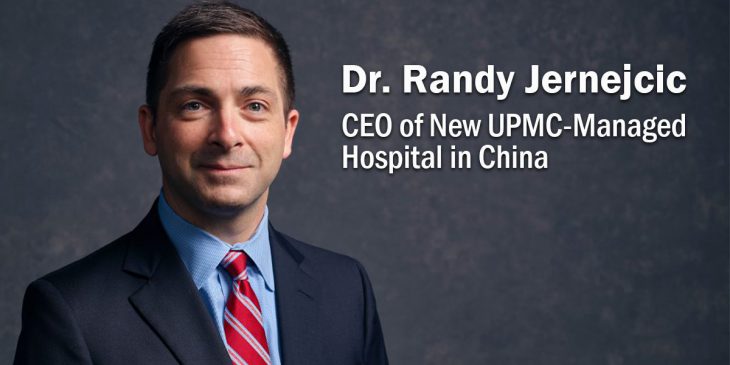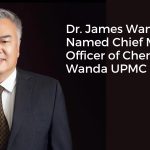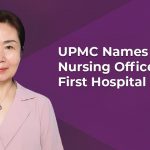Randy Jernejcic, M.D., a veteran health care leader with experience in China, will start as chief executive officer of the first UPMC-managed hospital in Chengdu, China, beginning on Feb. 1.
Owned and financed by Wanda Group, one of China’s leading conglomerates, the 500-bed facility currently under construction will be the first hospital in China to be modeled after and managed by a leading American academic medical center. Services will encompass patient-focused Centers of Excellence for cancer care, orthopaedics and sports medicine, neurology and neurosurgery, heart and vascular treatments, ophthalmology and digestive disorders, which will be integrated into UPMC’s global network.
A Cleveland native who most recently worked at University Hospitals of Cleveland, Jernejcic (pronounced “ger-NAY-sik”) shared his thoughts on what he’s learned from practicing medicine in China, and how he plans to bring high-quality, compassionate care to patients in Chengdu.
Q: Tell me a little about yourself. Do you have any connections to China?
Jernejcic: From 2009 to the end of 2012, I was the chief medical officer at Beijing United Family Hospital, one of the first foreign-owned health care systems in China. Those were exciting and fun times, when I worked with physicians and other health care workers from inside China and around the world, serving patients from different countries. Prior to that, I served as a physician for NBC through Beijing United Family Hospital during the Beijing Olympics.
Indeed, my fascination with China started when I was a medical student at The Ohio State University Medical School and spent the summer of 1994 in Tongji Hospital in Wuhan, one of the teaching hospitals of Tongji Medical University.
On a personal note, my wife of 25 years is from China, and my daughter was adopted from an orphanage in China. Until recently, I’ve had long ties providing health care to a number of orphanages in the Beijing area. That’s one of my big passions that I hope to continue once I’m back in China.
Q: What does it mean to you to be the chief executive officer of the first UPMC-managed facility in China?
J: UPMC is an amazing organization and really focuses on high-quality care for the people it serves. UPMC has shown its ability to provide this kind of care not just in Pennsylvania, but in a variety of other regions, including around the world.
UPMC’s international experience will be very helpful for this China endeavor. It is one of the very few U.S. academic medical centers that will have ground operations in China, instead of focusing on providing consulting services. Teams from UPMC with expertise in different specialties and areas, both clinical and administrative, will provide support, partnership and leadership to our China operation.
This unique setup means that as the CEO, I will have the necessary support to build a team that is dedicated to patient-focused health care for this brand-new hospital, which is the key for success. This is a unique opportunity for the U.S. and China to collaborate, to learn from each other, and to create an institution that will embrace the best of each world. I feel very fortunate to have this opportunity at this time to work on this challenging project.
Q: What is the biggest challenge you think you’ll face in establishing the new hospital?
J: One of the biggest challenges we’ll face is establishing a vision and then delivering on it. Obviously, the health care system in China is very different from that in the U.S., so what is the vision of a Chinese hospital managed by UPMC? It can’t be an entirely American hospital, and it can’t be an entirely Chinese hospital. How do you create a shared vision of what medicine is and then execute that with partners in two hemispheres, 12 hours apart, while ensuring patients have an outstanding experience of safe, high-quality and compassionate care?
During my time in Beijing, on the first day, I was standing up in front of about 100 medical staff. Most of the Chinese physicians were skeptical of me. I told them that I’m an American doctor and I’m proud of my training, but I’m not going to make them American doctors. I told them that they all had great training as well, but I don’t want to become a Chinese doctor, either. Instead, I encouraged the group to work with me and to challenge each other so that we all become the best physicians we can be and practice medicine in a new way. We challenged ourselves to give our patients the best of both countries.
Once we have that vision of what Chinese and American medicine is, we need to deliver it to the patients who have never seen anything like this. This is a difficult challenge, but not insurmountable with the right people.
Q: As you build your team, what kind of people are you looking for?
J: First and foremost, a focus on absolute excellence in care. When I say that, I mean excellence in clinical care, and also in compassionate care for patients.
I’m also looking for people who can think outside of their normal. This experience is going to be different, but if we can stay rooted in that excellence and compassionate care, we can manage the difference.
Third, I’m looking for people who can take a chance and be collaborative. When you take a chance, it’s not always just about you, it’s about your partners. When I’m sitting down across the table with a Chinese physician, they might approach a clinical issue a little bit differently than I do, but we need to work together. We need to learn from each other. In fact, these interactions over the years have made me a better clinician. We need people who are open to different ways of treating patients.
We are already working to identify this kind of talent not only in China but from among experienced doctors in the U.S. and Europe, who will work side by side with their Chinese counterparts.
Q: When will you make the move to China? Is your family excited?
J: First I’ll spend about six months in Pittsburgh to learn more about UPMC and familiarize myself with the teams that will support our China endeavor. The exact timing depends on a variety of things, including COVID-19 precautions.
My family is excited about the move. My in-laws are getting too old to travel, so we are excited to spend more time with them. My daughter is excited for traveling to China during college breaks to see that part of her culture.
Q: What lessons have you learned during your experiences practicing medicine in China?
J: From my experience, I learned that people everywhere want the same thing: They want to be cared for by somebody who’s compassionate, competent and listens to them. They want someone who helps them navigate a scary time, from a cancer diagnosis to helping their sick child. Those universals are everywhere in the world.
The Chinese have an amazing history in medicine. In addition to traditional medicine, they have learned western medicine quickly in recent history. They also did a remarkable job in a relatively short time frame to provide health care for 1.3 billion people. As an American doctor, I will not assume we know how to practice medicine better. Instead, we need to share our expertise in different areas and learn from each other.
In my three years in China practicing medicine with physicians from over 15 countries, I learned that as long as we share the same passion for providing excellent medical care for patients, then languages, cultures and different learnings are no longer barriers. I look forward to doing the same thing in Chengdu, and doing an even better job.








